HIV stigma: an interview with Dr. Vargas-Jackson, M.D. Howard University Hospital
Interview conducted by April Cashin-Garbutt, BA Hons (Cantab)

What is HIV stigma and what forms does it take?
Stigma has been defined as a social opportunistic disease that attaches to many illnesses and increases morbidity and mortality rates.
Stigma is the shame or disgrace attached to illnesses and diseases regarded as socially unacceptable. Those who feel stigmatized feel as though they are outcasts or marked as being inferior, dirty, different, and untouchable.
For people with low health literacy skills, HIV infection promotes fears, prejudices and/or negative attitudes leading to stigma. HIV positive people are insulted, rejected, gossiped about and excluded from social activities.
Stigma can be directed to an infected individual, to their providers and families; and self-stigmatization that is at the receiver’s end of the spectrum.
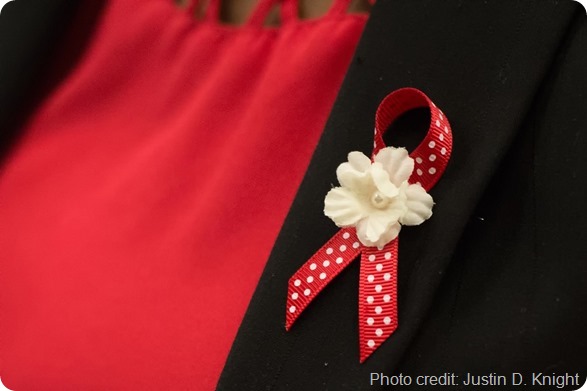
Participants wore red ribbons at the recent International Conference on HIV Stigma.
Where does HIV stigma stem from?
Stigma started with humanity; as we know, in Biblical times leprosy was a stigmatizing illness.
HIV is a new disease in the context of human history. When the first cases were being reported, many people believed that it was an illness of gays -- so much so that initially it was called a “Gay cancer.â€
If we recall, the media presented pictures of HIV/AIDS patients dying very painful deaths. The absence of treatment and/or knowledge about HIV at the beginning of the epidemic caused confusion, fear and panic at all levels, including providers.
Currently, the lack of knowledge about modes of transmission, prevention, and treatment continue the spread of rumours, misunderstandings, and confusion that contribute to HIV Stigma.
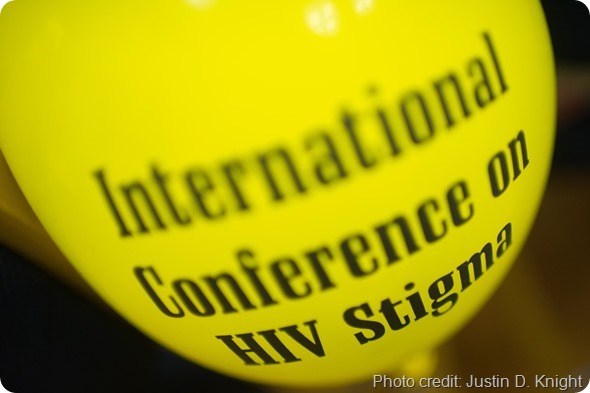
How much stigma is still attached to HIV and how has this changed over recent years?
Stigma is still prevalent at all levels of global society. It manifests itself in different ways depending upon cultural values. We can see that in some places, HIV infected persons can be killed because they bring shame and disgrace to their families and towns.
In other cases they can be barred from going to school, like in the case of Ryan White. Just last year there was another child deprived of the possibility to attend school in Philadelphia because of his HIV positive status.
Until the time when we can increase health literacy skills of global populations to a basic level, stigma will persist. Until we reach that point when communities, health care providers, media and politicians start working together to eliminate stigma, HIV and other health-related stigma will persist.
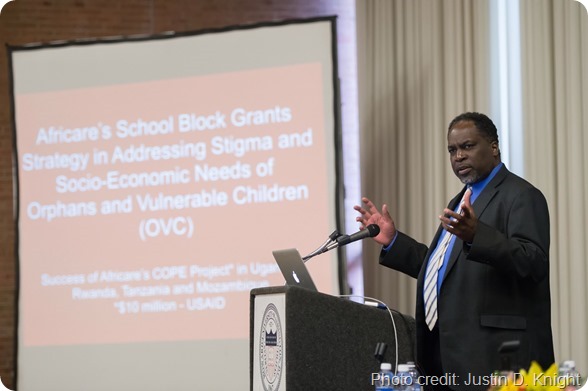
Robert Patterson from Africare spoke about a strategy to address HIV stigma among vulnerable children.
What impact does HIV stigma have on people who are HIV positive?
Impact on people living with HIV is huge, let’s start with education campaigns. People do not want to participate in education campaigns because of stigma. Many people tell us that, “If I go people will think that I am infected.â€
Tests for HIV are available in many places, but people will not have themselves tested because of stigma. Treatment is available, and people who have access to it may not be in compliance with their medication or appointments because of stigma.
For example, there is the case of a teenager coming to Howard University Hospital (for treatment) and telling us that she tried to take her meds; but because her girlfriends were with her, she couldn’t take the medications in fear that she would disclose her HIV status.
There are so many stories-- one I remember well is that of a person who was born positive. She grew up in foster care and was in otherwise in good health. She started university but disappeared from the face of the earth when a friend disclosed her HIV status on Facebook. She reappeared several months after the fact but refused medication. Her life according to her was intolerable because people labelled her as untouchable. She died a couple of years ago; she did not die of HIV, she died of stigma.
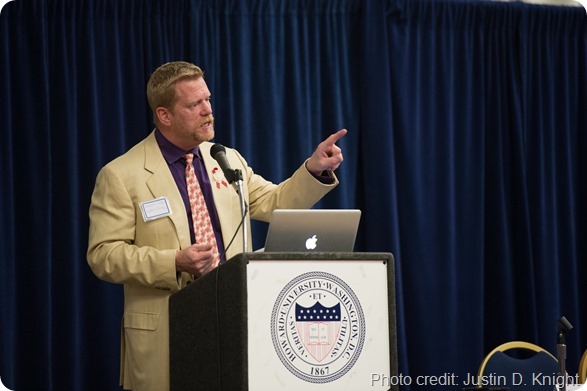
Martin S. King, author of MyFabDisease, spoke about stigmas against HIV positive homosexuals.
How are physicians at Howard University and Howard University Hospital tackling HIV stigma?
We are tackling stigma one person at a time. Each patient brings a different painful and desperate stigma story attached to his/her HIV diagnosis.
We think that Stigma and Health literacy related topics should be integral parts of any medical school curricula.
Learning about stigma and increasing health literacy skill levels should start at an early age, kindergarten perhaps, with culturally and age-appropriate curricula. We need to partner more with the media, as most people receive information through the media.
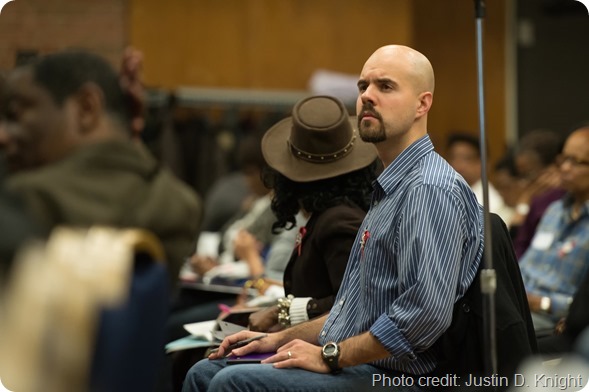
Howard University held its fourth annual International Conference on Stigma recently. Please can you summarize the aims and outcomes of this conference?
Every year we bring together experts from around the world to disseminate information on “Best Practices,†and “What is Working†so that people who attend or participate via the web can benefit from the knowledge and can learn new techniques that will benefit their communities.
Additionally, we want to create awareness, develop collaboration with other agencies and organizations and foster research on topics that we know are experienced worldwide by people living with HIV and other stigmatizing diseases.

A performance by the Barrie School choir.
How long do you think it will take to eliminate HIV stigma?
Let me put it this way: the more people and organizations teaming up with us to eliminate Stigma, the shorter time it will take us.
We know that everybody wants to eliminate pain and suffering from their fellow humans, if they could, even if they don’t know it yet.
We know that deep inside we all agree that health is a human right, and we know that without increasing global health literacy skills levels, very little progress can be made to eliminate stigma.
But at the same time we know that organizations like yours are taking a big step in the right direction, disseminating needed information, and that means a lot.
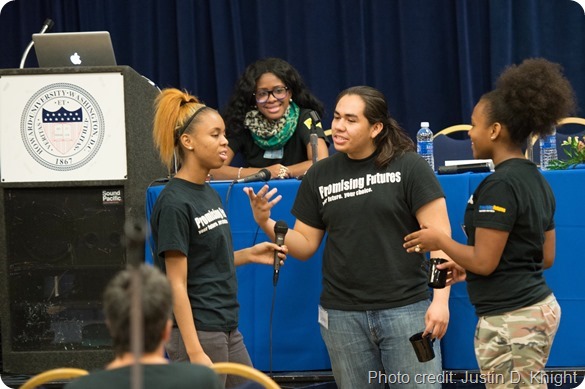
A performance by the Promising Futures youth development program.
Where can readers find more information?
There are many places to find information, but we can start on our web site: Here at Howard University we have developed a web site that runs independently. On the site, people can obtain information, and contribute at the same time. We place scientific reports on the site; people can send comments, stories, challenges, and suggestions.
Even for the Stigma conference, we take global comments for main topics or speakers that people would like to hear. I know that in the United States, the Centre for Disease Control and Prevention, the Office of Minority Health, National Institutes of Health and other government run organizations have started providing Stigma and Health Literacy related information as well.
Our web site is: www.WhoCanYouTell.org
About Dr. Vargas-Jackson
 Dr. Rebecca Vargas-Jackson is an experienced, highly qualified bi-lingual, bi-cultural physician working over 20-years in the U.S. and overseas directing and supervising professional teams in charge of developing, planning, designing, organizing, supervising, managing, monitoring and evaluating national and international programs and projects targeting culturally diverse populations. Her official title is Training Director of the Howard College of Medicine. She oversees education and training sessions to medical doctors, interns and residents.
Dr. Rebecca Vargas-Jackson is an experienced, highly qualified bi-lingual, bi-cultural physician working over 20-years in the U.S. and overseas directing and supervising professional teams in charge of developing, planning, designing, organizing, supervising, managing, monitoring and evaluating national and international programs and projects targeting culturally diverse populations. Her official title is Training Director of the Howard College of Medicine. She oversees education and training sessions to medical doctors, interns and residents.
0 comments:
Post a Comment